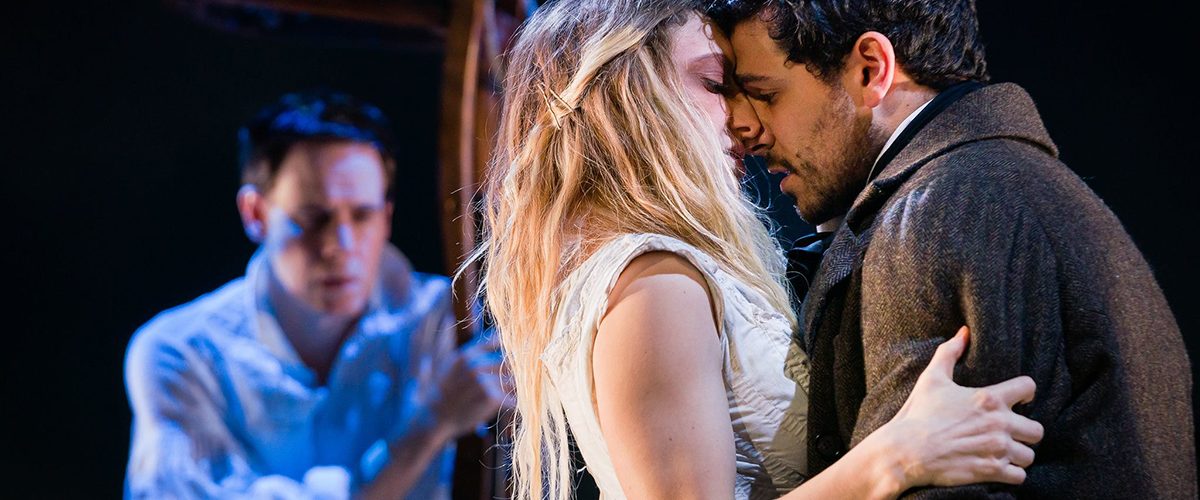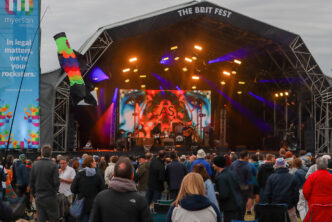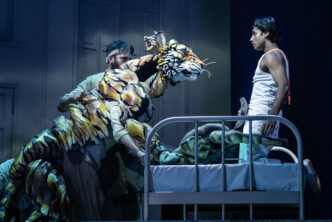Following the likes of Rebecca, Brief Encounter and Malory Towers, Emily Brontë’s Wuthering Heights is the latest literary work to get the Emma Rice treatment, and arguably it wears it best of all.
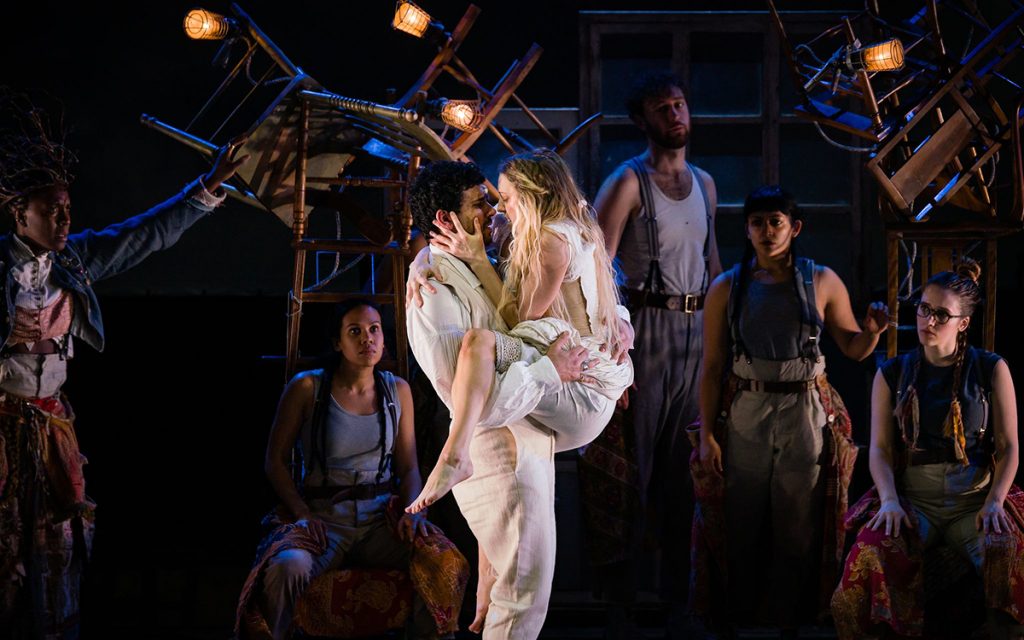
The passion, wildness and intensity of the 1847 novel is vividly underscored with many of Rice’s signature elements: puppets, used to portray the characters as children; rhythmic choreographed movement; staging that exposes the inner workings of the production, with visible wings and a fluidly mobile set; and folk-influenced music played live onstage by a band. Songs pepper the script, showcasing both Rice’s poetic gifts and the cast’s hauntingly beautiful vocals, though some are perhaps unnecessary add-ons.
Rice’s love for the novel is evident in this production’s faithfulness to the plot – the narrative’s often cut framing device, the arrival of outsider Mr Lockwood, is kept in, and the confusingly interlinked cast of characters is explained directly to Lockwood and the audience, rather than simplified. Indeed, the murky, claustrophobic web of character relationships – created by the apparent isolation of the Earnshaw and Linton families from the rest of the community – contrasts with the video projection of an expansive sky, which is a constant moving backdrop to the action.
Lucy McCormick excels in the role of Catherine Earnshaw, perfectly capturing the character’s mental and emotional instability with sudden mood swings, raw sung vocals and involuntary movements. Her chemistry with Liam Tamne is tangible; Tamne himself is an imposing, tortured presence, and it’s great to hear Heathcliff’s lines delivered in a non-native accent, acknowledging the non-British heritage of the character. Credit must also be given to Stephanie Hockley, who on press night stepped into the roles of Frances Earnshaw and Catherine Linton with ease and a truly beautiful vocal performance.
One major change this production does make is replacing the Nelly Dean character with a moorland chorus, headed by The Leader of the Moor (Nandi Bhebhe). The Leader fulfils much of Nelly’s function – she is a constant throughout the story, a conscience and an advocate for the characters – and she embodies the vital influence of the moorland on the novel. She is also a uniquely powerful, supernatural female figure – and in a story where women are treated horrendously, this comes as welcome relief. Forced marriage, rape, imprisonment, physical abuse and death as a result of childbirth all feature – and in this production they aren’t always treated with the seriousness they deserve.
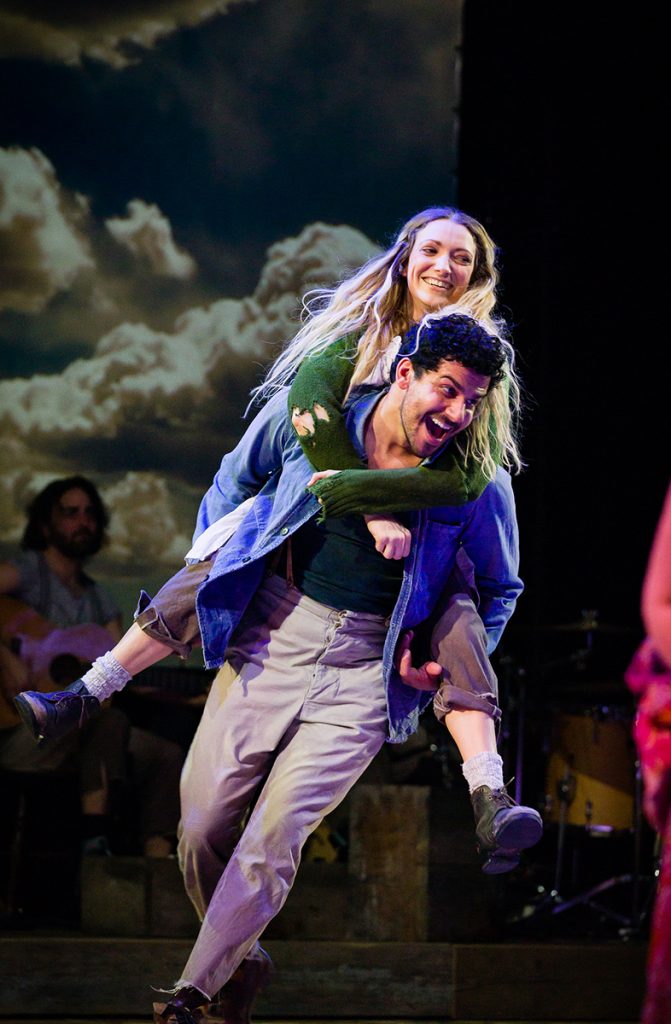
The doctor’s flippantly delivered speech about Frances Earnshaw’s inevitable death following the birth of Hareton sits very uncomfortably with current developments around women’s rights in America. Isabella Linton is transformed into a figure of fun by Katy Owen’s undeniable talent for physical comedy, but the encouragement to laugh at her bleeds into the moment when she is raped onstage by Heathcliff.
The wildness, power and creativity packed into this adaptation makes it a must-see for lovers of the novel – and if you can cope with the nearly three hour run time, it’s an excellent introduction for newcomers too.
Wuthering Heights is at The Lowry from 3-7 May 2022.

